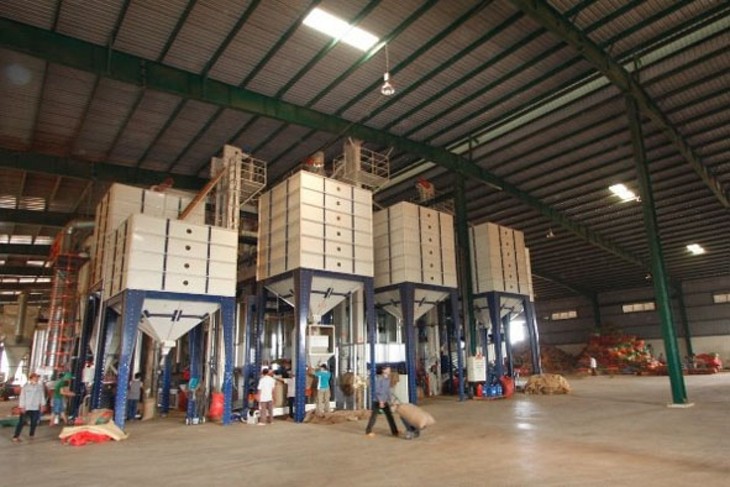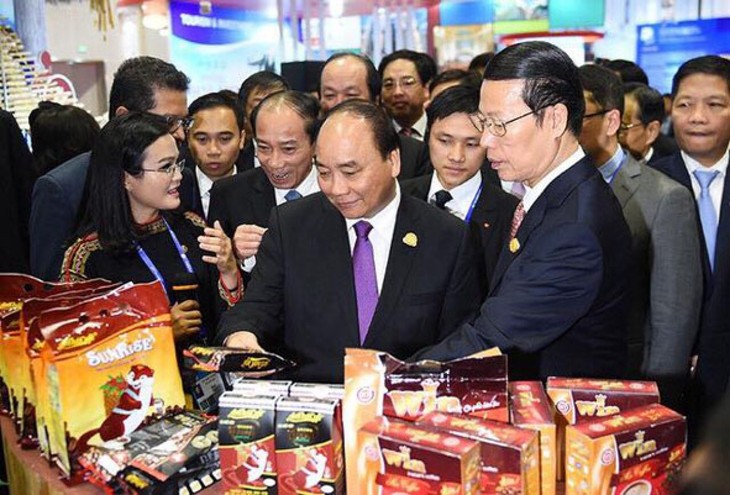(VOVWORLD) - The EU-Vietnam Free Trade Agreement (EVFTA) took effect on August 1, 2020. The Vietnamese government, ministries, sectors, agencies, and businesses have all prepared to fully tap the EVFTA’s opportunities.
 A Simexco Dak Lak packaging line (Photo: vov.vn) A Simexco Dak Lak packaging line (Photo: vov.vn) |
The Simexo Daklak Company, which trades and exports coffee, pepper, and farm produce, have thorough studied the world market.
It has paid special attention to the EU, a demanding market with strict requirements for product quality, technical barriers, and traceability.
The company has worked closely with hundreds of farmers and taught them advanced techniques for coffee and pepper production to meet foreign market requirements.
Nguyen Tien Dung, Director of a project on sustainable coffee production conducted by the Simexco Dak Lak company, said that now that the EVFTA has taken effect, the technical barriers and requirements of the EU market are no longer a headache.
“We’ve paid attention to the issue because the EVFTA can help Vietnamese farm produce enter the market easier with more preferential treatment. But to be able to export to demanding European markets, the domestic agricultural sector and Simexco itself have to build a raw material area to meet their standards,” said Dung.
 PM Nguyen Xuan Phuc (second from right) and other high-ranking officials visit a stall of the An Thai Coffee Investment and Development Company at the 13thChina-ASEAN Trade Fair. (Photo: vov.vn) PM Nguyen Xuan Phuc (second from right) and other high-ranking officials visit a stall of the An Thai Coffee Investment and Development Company at the 13thChina-ASEAN Trade Fair. (Photo: vov.vn) |
An Thai Coffee Investment and Development Company is one of the businesses in Dak Lak that have attached great importance to the EU.
As an experienced roasted coffee and instant coffee exporter, An Thai has been improving its product quality, design, packaging, and origin tracing in order to penetrate the EU market as the EVFTA came into force.
Nguyen Xuan Loi, the company’s Director, said, “This is an opportunity for us to enter a more demanding market, but we are facing lots of difficulties compared to foreign coffee exporters. We have continuously adopted innovative technology and improved our productivity and quality to meet integration demands.”
Vietnamese enterprises in the garment and textile, footwear, seafood, and wood sectors - Vietnam's key export items – have developed raw material sources, trained human resources, and built a technology infrastructure to quickly take advantage of opportunities created by EVFTA.
Vietnamese agencies have helped businesses understand the origin rules, a key to enjoying the preferential tariff rates.
Vu Tien Loc, Chairman of the Vietnam Chamber of Commerce and Industry, gave the recent release of a Manual on EVFTA as an example.
“To help businesses understand the core features of the EVFTA, VCCI has compiled a Manual on EVFTA. The handbook was compiled by many experts based on their professional knowledge and experience in consulting enterprises on FTAs in recent years,” said Loc.
In the month since the EVFTA took effect, Vietnam has earned nearly 280 million USD from exports to the EU, up 10% over the previous month.
The first 126 tons of Vietnamese fragrant rice was exported to the EU last week at the 0% tariff rate.
The initial results have been positive for Vietnam despite a global market that remains hampered by the COVID-19 pandemic.